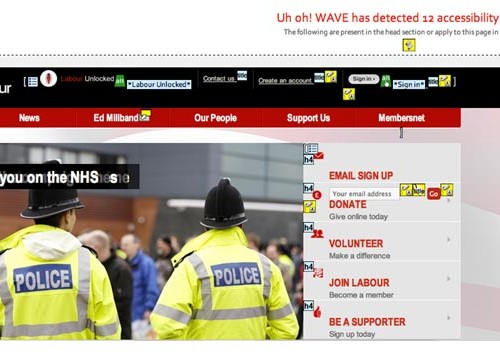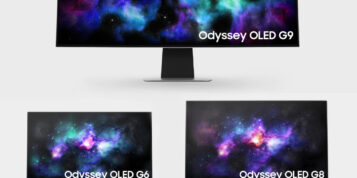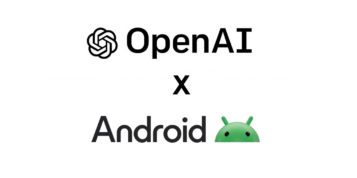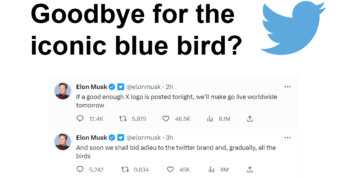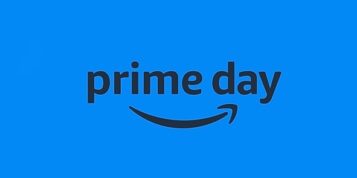Labour, Lib Dem and Conservative are all failing in their use of digital media channels, with the Labour and Lib Dem website’s even infringing the Disability Discrimination guidelines.
UK advertising agency Cheetham Bell JWT (CBJWT) carried out a Digtal MOT report of the three parties ahead of the local elections which took place last week on Thursday. The report looks at the use of a number of digital channels including website effectiveness and accessibility, use of social media, and search engine activity. It is the same report CBJWT use to assess the performance of hundreds of household brands each year.
All three parties failed to achieve the pass mark criteria of 60 out of a possible 105.
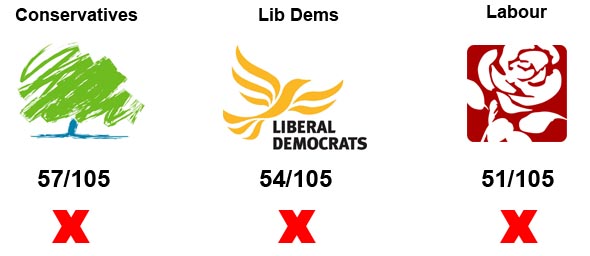
Conservatives came the closest with 57, Lib Dems in second place with 54 and Labour trailed last with 51.
Most damaging findings
Some of the most damaging findings of the report included:
1. Poor Search Engine Optimisation (SEO)
None of three parties ranked in pages 1-4 of the Google Search Engine Result Pages (SERPs) for the term “local elections”, despite there being approximately 50,000 searches per month for that term. Other key search terms including immigration, NHS and foreign policy failed to find a single mention of the three parties. The parties are failing to connect wit these potential voters.
2. Poor or no consideration for mobile users
Last year, 45% of UK citizens accessed the internet from their mobile phone, according to findings by the Office of National Statistics (ONS). Labour nor the Lib Dems even have a mobile website and the Conservatives mobile site is uninspiring and difficult to read.
3. Lazy and uninspiring use of social media
The combined total Facebook updates from the three parties in the month leading up to the local elections is only 68. The total number of tweets over the same period is a meagre 79. There is no attempt to really engage with their users.
The parties are simply replicating existing activity by posting updates about activities and news rather than using them to really interact with voters. It is difficult to establish which Twitter accounts are real, as there are three for each party and none of the Tories accounts are rated as official.
4. Failure to comply with Disability Discrimination Guidelines
Labour and the Liberal Democrats are failing to check that their website articles are using alt text that can be read by visually impaired voters. Some pages, like the one shown below, feature 12 accessibility errors.
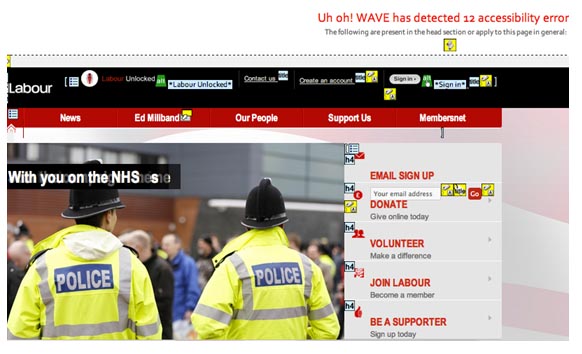
CBJWT Chief Executive David Bell who commissioned the report said: “We were genuinely shocked at the lack of understanding and strategy this digital MOT has revealed among the major political parties. The rest of the world is embracing the digital age but politicians are clinging to the same old clumsy, environmentally unfriendly and scattergun electioneering approach – door drops, newspaper inserts, posters etc. With political party funding under scrutiny, politicians have to look to digital media as a much more cost effective and targeted way to reach voters, particularly the digitally savvy e-lectorate, who are far more likely to engage with a candidate on Facebook or Google them than to read a leaflet that comes through the door with a handful of pizza menus.”
Some positives
– Lib Dems are the clear leaders in blogging – with longer articles, regular updates and reader interaction. The Tories have a much less active blog roll, while Labour have yet to start a blog at all; another missed opportunity to connect with voters and drive SEO
– Labour’s website is easy to use and has a clear strategy and purpose with strong calls to action, good links to their social media and opportunities for data collection.
– The Tories are the clear leaders in video content, both on their website and on YouTube
The Digital MOT comes as a YouGov survey found support for the Conservative party had fallen to 29%, 11 points behind Labour on 40%, and the Conservatives’ lowest rating since 2004. CBJWT’s Digital Director Craig Johnson comments: “We’ve all seen how well digital media can work to reach the 21st century e-lectorate. Barack Obama recently held a White House briefing followed by a Google + broadcast where voters had to join his circle to join in and take part which generated over 1million followers. Britain’s political parties need to stop using digital media to talk at us and embrace it as a chance to engage with us, as frightening as that might be. If fish and chip shops can do it, then so can the people who want to run this country.”
